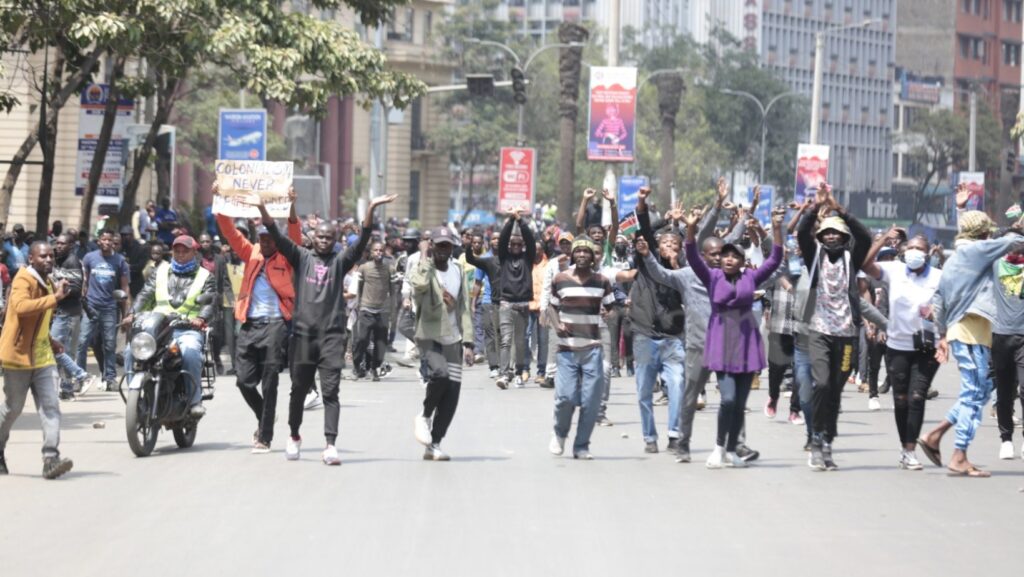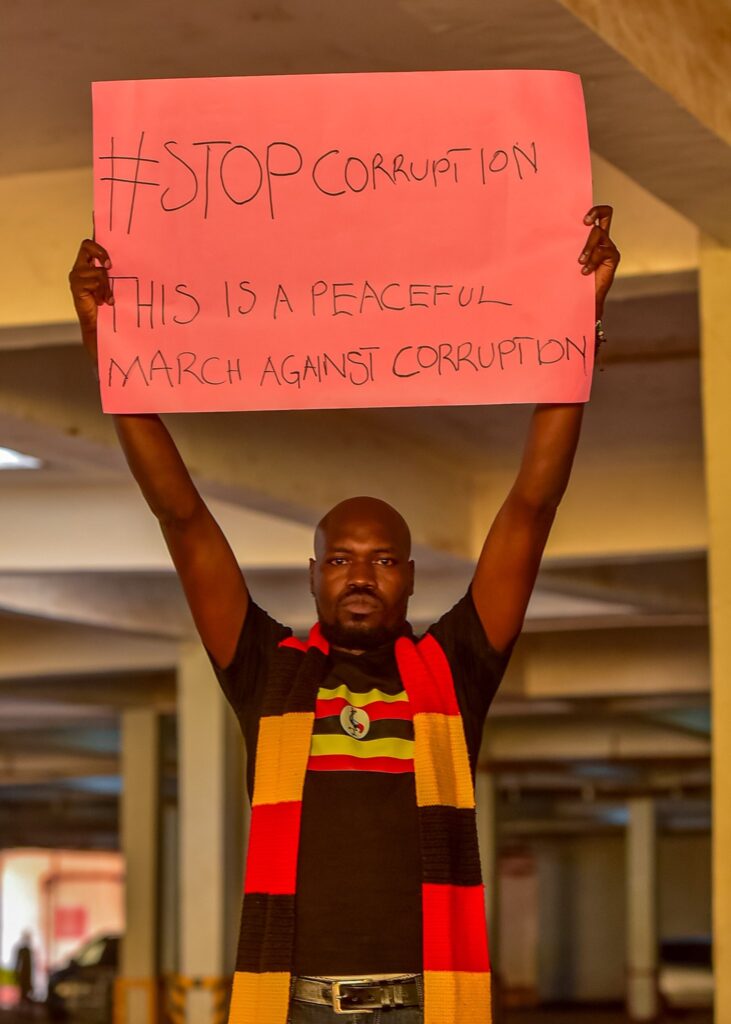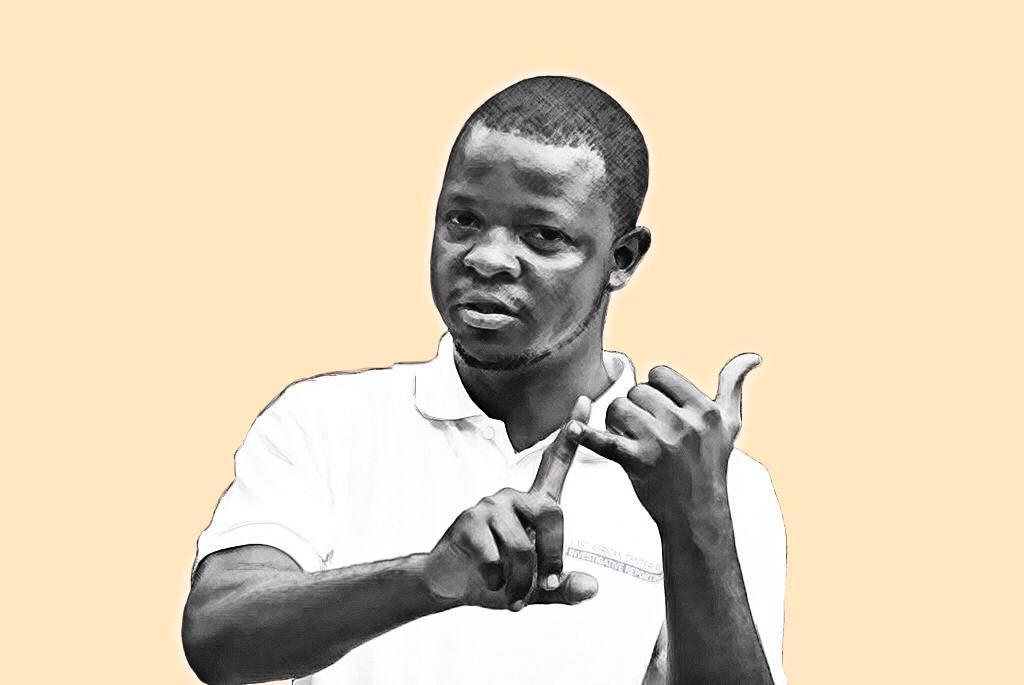In July, I flew down south to the little, lovely Kingdom of Eswatini (formerly Swaziland). My immediate neighbour from Entebbe International Airport to Jomo Kenyatta International Airport (JKIA) was a CEO of one of East Africa’s biggest companies. He’d been to Kampala for a meeting with their Uganda branch. I asked him how the Kampala office was performing. He was joyous. It was the most profitable in the region and the prospects from the oil and gas sector present even more scintillating rays of hope for business growth.
An amiable man of Kikuyu nation extraction. Polished in skin and character, thoughtful in talk and eloquent in presentation. We picked up a conversation over not-exactly nice dry red wine served in that short but over-priced flight from Entebbe to Nairobi. It was one of the most pleasurable chats of 40 minutes I’ve had in my last 30 years under the Sub-Saharan African sun.
My neighbour’s son had taken part in the Generation Z (typically kids under 27 years) demos that swept through Kenya, threatening the center of power over there while scoring unforeseen and unbelievable political goals. President William Ruto’s coiling of his tail on the Finance Bill, axing his cabinet and meeting, via X (formerly Twitter), with this army of organized and courageous youth, dominated our chat. Then I turned the gun on my neighbour. Why was a son of a top CEO taking part in these demos? First, my neighbour expressed his profound pride in the civic consciousness his son had exhibited, let alone the courage. He fully supported him albeit the risks (some over 100 demonstrators got killed or badly injured). Challenging the state can be a risky enterprise.

Thus went the pre-demonstration day chat between son and father over diner at home, “Dad, you work so hard and 40% of your income goes to government in taxes but we don’t see what that money is doing. This struggle is for you and us. Let us fight for you. We demand for better.” I thought that was powerful, coming from a university student who ordinarily would be puffing away at shisha and galloping gallons of Scotch whisky in Nairobi’s leafy suburbs with fellow kids of the movers and shakers of East Africa’s biggest economy. Alas, he was on the streets, days on end, fighting, fighting a fight that would have left him maimed, permanently deformed or even killed by a random bullet. He was in for struggle, no matter the cost, and daddy CEO was praying for his own child’s and his child’s peers’ safety while toiling away at the job, in compliant service of multinational capital, to bring bread home and give Caesar what belongs to Caesar- a whopping 40% of that toil.
When my neighbour’s distant relative is sick and cannot access decent medical care, let alone get an ambulance for an emergency in the village, he feels the pinch of a broken and dysfunctional state. When he has to deal with pressure from relatives and strangers alike, some belching with irritating sense of entitlement, of unemployed and desperate youth looking for a livelihood source, his fat pay cheque shrinks in his heart. He cannot freely move about Nairobi because there lies danger ahead from someone else’s son who has no qualms hitting him with a blunt object while he jogs to cut weight, if that will get them a phone for a cheap sale to afford a meal of ugali and maragwe, a kind of ruthless redistribution of the national cake by the have-nots against the haves. It matters not, at that time, that he is a CEO or that his employer paid a 13th month cheque. No one can stop reggae. We are ensconced in this Noah’s ark of a flawed system. As the Barbadian singer Shontelle Delia put it, “…we are in this together. Stuck with each other.” Rich or poor, politically connected or inconsequential in society, our day of reckoning comes in different doses and fashions. Death by a thousand cuts. Lingchi!
And so, it made sense for my neighbour to support his offspring to take to the streets and yell out his grievances, even at the point of the bayonet. He’d identified his struggle and was happy to prosecute that struggle.
As the plane touched down, and he was returning home, while I connected to the great city of Johannesburg for onward transmission to the small but neat city of Manzini, in Eswatini, we both agreed that the emerging movement of angry, potentially violent and sometimes hungry but above all, informed, ambitious and courageous youth taking to the streets, is a different type of challenge for the African ruler. It is a challenge from and within home.
How, for instance, we rhetorically asked ourselves, as we marched to the Immigration Desk, do you order the police or army to randomly shoot, shoot at demonstrators of whom your own kids are a part? By ‘your’ I mean, the ruling class—well, Dani Nabudere didn’t think they constitute the ruling class as the actual ruling class is composed of multinational capital and our political and business elite are only servants and beneficiaries of that ruling class). Be that as it may, here, you are dealing with a completely different ‘enemy’, an ‘enemy’ from within. These kids aren’t alone. They are a microcosmic representation, one can safely argue, of their own parents’ and society’s own frustrations with our governance models in most parts of Africa. The progressive and successful constituents of our society are going through their children to demonstrate their desire for a new bargain. A new consensus. A new order. A new pact. A new social contract. A remodeling and re-imagination of the post-colonial state to function and deliver anew. They won’t listen to lectures from intellectuals on how such transitions in society take time and occur organically and that there are no short cuts to societal transformation.
It is new wine in new bottles, this Gen Z wind. It is blowing from Kenya to Uganda to parts of West Africa, Southern Africa, including at one time in Eswatini where questions are being asked by the Gen Z about the sustainability or relevance of an absolute monarchy in a 21st century polity.
These are kids of parliamentarians, CEOs, sometimes Ministers, successful business men and below their class, kids who have gone to school, earned a degree on account of their parents’ sweat and sacrifice but are jobless. By age 30, the average Ugandan graduate is still trying to find a stable source of income, most earning less than 150$ in a city with rising cost of living and a nation with high dependence burden on the few with some income. The equation of their plight is completed by an aggressive tax collection regime that seeks to milk the cow to the bone without feeding it. Our governments seem to be hell-bent on expanding revenue through more taxation and less investment in enhancing production and industrialization. An archetypal colonial structure where the economy is built on the extraction of value from the colony to serve the colonial master’s economic interests.
The few, of these Gen Z comrades, who get public service jobs mainly get them through their family connections to power. The millions who are children of Opolot in Kachumbala, Musiime in Kiruhura, Zawedde in Masaka, Matsiko in Rubanda and Alemi in Zombo, are left to fly on their own but their wings were clipped by a moribund system. Omuntu agoinge wa?
Why do I call them new wine in new bottles? One cannot dismiss them with the broad-brush used to dismiss the youth that took part in some of the demonstrations that Dr. Kizza Besigye at his helm, led around the Walk-to Work time or even the 2009 Kayunga riots or more recently, the Free-Bobi Wine demonstrations in the lead up to the 2021 general elections. That youth segment, for the government propaganda machinery and intelligence agencies, was easy to frame and label as the late John Nagenda did in his Saturday Vision column, “the unwashed of society”. When they burn car tyres on the streets, violently put up road blocks to extort from those driving ‘good cars’ and insult some citizens using ethicized undertones, they arm the state with ammunition to frame and label them, hence creating a buffer between those in power and the middle class who are co-opted into sympathizing with or defending those in power and judging the protester as an unwanted inconvenience on the peace of mind of the affluent. But now, it is the middle class, through their children, at the center of asking the hard questions. It is successful musicians, radio presenters, academics, journalists, lawyers, children of the successful working class, and articulate graduates without jobs taking to the streets physically and in virtual spaces to demand for better in the best way they know how. To dismiss this group or simply use brute force to clamp it down, is a miscalculation, at least in the long term.
The idea that these are ‘key board warriors’ without keen interest on voting, doesn’t seem to fly anymore. They are demanding for their share of voice. If the dismissal of the Nagendian ‘unwashed of society’ was grounded on the fact that these are children from the slums, probably high on low grade weed and waragi or paid some peanuts from the political opposition, here and now, you have kids who may be high on some weed but it is quite a polished type of weed, laced in cookies that they eat during birthday parties in Kololo, Muyenga or Najjera while planning to do another expose on Twitter or get bail for their arrested comrades. You can’t dismiss them. Especially because they do this with the sanction and blessing of their community, media, family and religious groups who may not be able to come out strongly. It means then, that the discomfort is felt across the middle class, including those with real or perceived power.

A critical mass of the ordinarily ‘comfortable’ is starting to realise that we are all screwed by a flawed system and that system hangs on a very unsustainable thread of force of arms to hold power and contain resistance. It is built on an illusion of invisibility which is getting paler by the day. It relies on deception and propaganda whose currency has lost value save to the purveyors of these poorly-scripted narratives who, in the eyes of the common man, are appearing ever more clownish like cartoons on television, to the extent of assuming their lies are believed anymore. And these are sentiments from people who ordinarily should be protecting the status quo in the quest for self-preservation but there is nothing to preserve anymore as the foundation of society and community has developed cracks and the walls of leadership are giving way. The clouds are getting darker. Anxiety is at its highest. The center cannot hold. A storm is gathering. The old must give way to the new but the old won’t give way except through civilian struggle of the new.
The demonized Gen Zs are heroes in their communities, they are not perceived as reckless youth to be frowned upon for doing reckless and silly things online or in the streets. No. They are being saluted for doing something noble by their parents and peers and friends and online communities and even strangers; cutting across the ethnic, social class and partisan divide.
Framing and labelling them as agents of imperialism doesn’t register in their minds. They live in economies that reward foreigners more than the indigenous peoples of their ancestors’ lands. To their mind, the ruling class are in bed with the foreign forces to deprive them a share of their ancestors’ rich inheritance—mining and minerals trade dominated by foreigners who pay them under 80$ a month for hard labour while securing tax holidays that their struggling businesses cannot secure. Road construction tenders that go to foreigners who repatriate profit back to China, while they can only be employed as site staff, barked at and sometimes clobbered by their foreign bosses who pay them wages the price of a wine bottle. Mushrooming global hotel chains where at most they can work as waitresses under the command of foreign bosses. Commercial agriculture enterprises that dispossess them of land violently as national security institutions ally with foreigners to evict entire villages off land and the court system, land registry system, the whole system, work in unison to support forgery of land titles in respect of land on which their ancestors lived and bodies must be exhumed for reburial at a fee. To them, the agents of imperialism are the ruling class to whom the foreigner is a strategic ally for their continued dominion over fellow black men and women. The neo-colonialism collaborators, in their minds’ eye, are the pots calling kettles black.
They are, these Gen Zs, also, for the better part, articulate and smart in argument, exposed in outlook of the world and hungry for better. They have capacity to envision a better world, aspire for better and now they want to fight for it, in the best way that their context and circumstances allow. There are no more thickets in the jungles of the Luweero triangle that the Gen Zs of the time, like Mugisha Muntu, Eriya Kategaya, Kizza Besigye, and their compatriots, dashed to in search for the soul of the nation. Those thickets and jungles are now online, activated through digital communications and their ‘democratising effect’ on the world.
With the passage of time, context, circumstances and opportunities as well as challenges, change for every generation but what remains unshakeable is the human spirit to struggle to improve their material conditions. How that struggle manifests is a game and question of time and context—-there was a time the Oliver Tambo-Nelson Mandela-African National Congress deemed a blend of armed resistance and non-violent activism suitable but today’s generation of the Julius Malema-Economic Freedom Fighters era need not send fighters for training overseas to achieve black economic emancipation. Their fight is a different fight in a different context. The same with the FRONASA-NRA-Yoweri Museveni era of armed guerrilla warfare resistance approach.
Each generation’s grasp of its challenges and how to respond to those challenges is a game of their conditions and the opportunities available to them. Each of those generations has not had to get permission from anyone to launch their struggle and advance their cause. It appears to me, therefore, that we are witnessing a generational call to action and an unstoppable march forward. It can be postponed through violence but cannot, with time, be stopped. One can stretch it from the Arab Spring of a few years ago that claimed the old rulership of that part of Africa. The Generation Zs only have to be careful not to allow opportunists to hijack their cause and change their course of action but either way, nature abhors a vacuum and will self-correct so worry not, dear brethren.
But that is only part of the story. How did we get here?
Firstly, our populations have grown by several fold in the last 20 years or so. Our economies have also expanded both in size and opportunity—-we have more children in school today (as a percentage of the population) than we did in the 1960s, never mind the quality of the education offered and quality of the product. We also have more people accessing healthcare, immunization and health facilities (as a percentage of the population) than we did in 1975, for example. More of our African peoples are connected to the electricity grid, clean water sources and telephonic/internet network than was the case in the 1990s when most of us were born. There is growth across Africa. Let no one be irrational to dismiss that reality.
The life expectancy of the average African has improved (may be not the quality of life in terms of all human development indicators but the quantity of life certainly has gone up). This means that more Africans today can read and write, live longer and watch more children see their 18th birthday as child mortality has also impressively dropped. Absolute poverty numbers are also reducing while urbanization is fast rising. More Africans are also more cosmopolitan, exposed, inter-married, travelled and generally, intelligent than the old African chief that harvested and sold his own subjects to slave traders in exchange for spices and mirrors.
This all sounds good.
However, these success points that the world has registered have also become pain points for African leaders. You now have a huge army of jobless, poorly skilled and largely unemployable labour force because the system has failed them. Failed them how? By sustaining an education system that is dead on arrival, incapable of churning out competitive and worthy products for the labour market, unable to create opportunities in the economy to absorb the few skilled ones that emerge out of the system.
The system is designed to make them fail and failing to fail is an exception to the rule not the rule. Their fate is sealed but they fight back, craving for better and ready to die for it; either crossing the perilous sea waters to Europe, working under tough conditions in the Middle East or challenging the blatant abuse of power and public resources back home. Whatever it is, struggle is their only option. Like Charles Dickens’ Oliver Twist, please sir, they want more.
This army is growing in number and influence. Its civic consciousness is also improving. It is, the real opposition in African politics as the supposed formal political opposition are into deal making with the ruling class. The formal structures of political leadership, therefore, are no different from the colonial structures of power. Those structures, however, have to contend with a unique challenge that the colonial administrations did not have to contend with; an educated, jobless, desperate and exposed, intelligent mass, in the millions, of African youth who are in for a fight using unorthodox means that the political structures of old can neither gate-keep nor moderate or even overwhelm and certainly not bribe for they are too many be bribed. The power in the numbers and the quality of those numbers is both scary and encouraging. The next battle front for African resistance with and to power, lies right there. The next revolutionaries of Africa are in the nursery bed being laid right under our watch. In our lifetime, we shall see these seeds sowed by the Gen Z protests bear fruit.
This youth army will set the terms of their struggle and determine their allies within the purview of their context. Other youthful generations before them did it: Nelson Mandela, Oliver Tambo, Jomo Kenyatta, Robert Mugabe, Mwalimu Nyerere, Paul Kagame, Steve Biko, Ignatius Kangave Musazi, Milton Obote, Winnie Mandela—-all these and more, pushed back at the twilight of their younger years. Before them others did the same. The script of our generation’s push back is written on the wall but only those with power cannot see; for power intoxicates and blinds and deafens and emboldens and deprives of reason and extinguishes the soul and messes up with the five senses of man.
It is a constituent part of the most successful, enlightened and articulate membership of our society and that is what makes this new wave dangerously sexy for change is not brought by the peasantry but by the enlightened of society. Like new wine in new bottles, they are a completely different drink for those who wield political power in Africa. They will die a death of a thousand cuts. Lingchi! Yes, Lingchi.

Ivan Okuda is a lawyer and writer based in Kampala










Ivan, thanks for the enlightening sum up of our condition in Africa. Our educational institutions are disfunctional and undelivering because they are not a priority in the rulers’ development agenda. Grandiose projects that attract big cuts that line the rulers pockets are the most important.